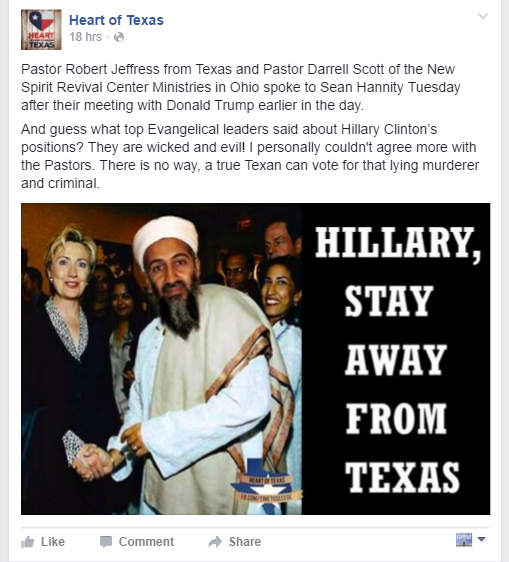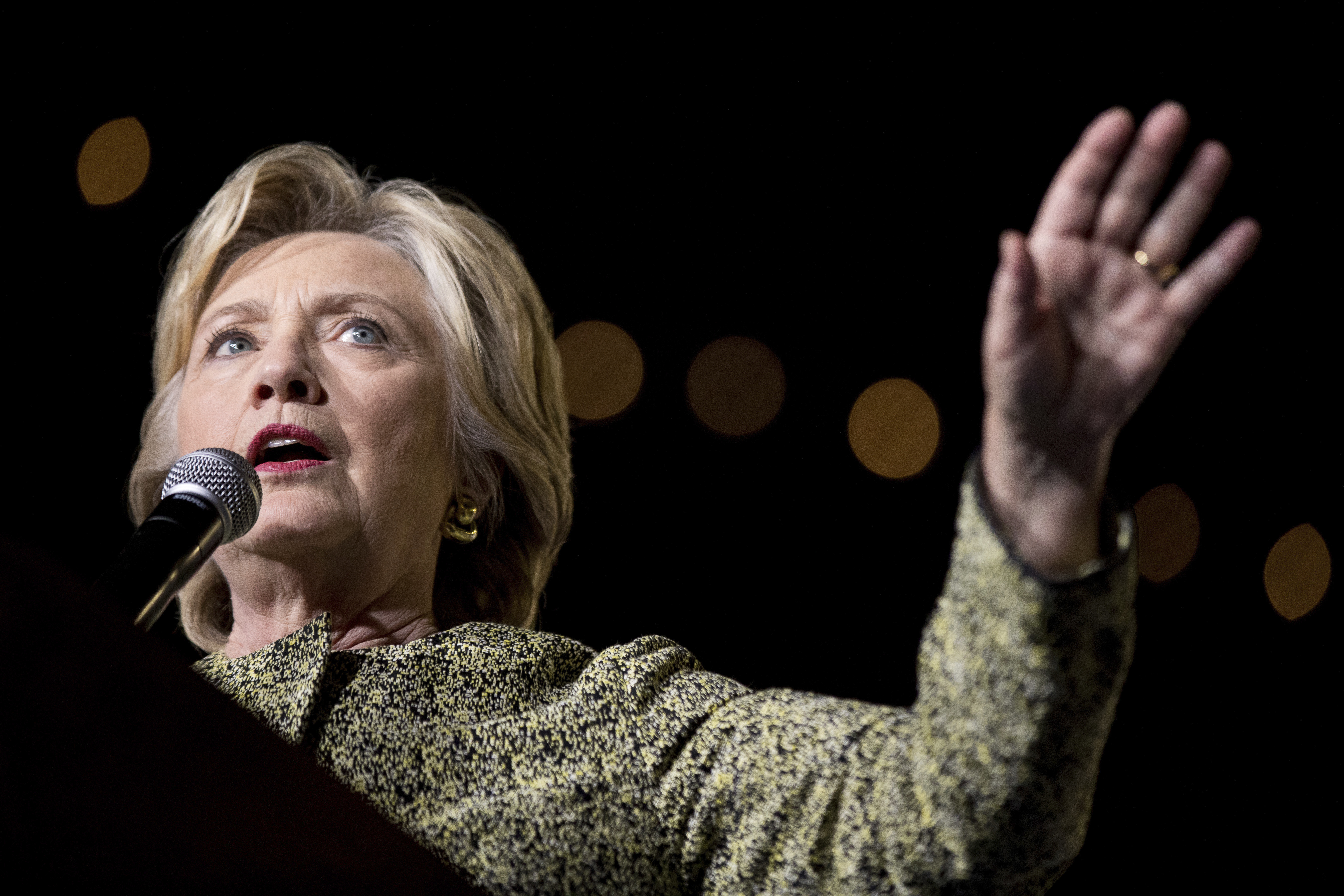By meddling in the 2016 U.S. presidential election, Moscow appears to have initially aimed to plant Donald Trump in the White House. But as signs toward the end of the campaign pointed to Trump’s defeat, actors in Russia were primarily trying to hamstring Hillary Clinton’s perceived ascension to the presidency. That theme ThinkProgress detailed earlier this week by analyzing Russia’s creation of hundreds of fake Facebook accounts, pumped via ads and promotion into Americans’ feeds.
For part 1 of this series, click here.
We’ve also learned that certain pages called for followers to vote for Jill Stein and Bernie Sanders, as opposed to Clinton — although those posts, especially as pertaining to Sanders, haven’t yet been revealed publicly.
Both the “Secured Borders” and “Beyond Patriotic” pages revealed by the Daily Beast were steeped in anti-Clinton rhetoric, with the latter organizing on-the-ground rallies that featured Americans chanting to “lock her up!” In one example from “Secured Borders,” the authors — referring to Clinton as “Killary” — piggy-backed on the outrage over Clinton’s comments that certain Trump supporters are “deplorables.” As the post wrote, “If Killary thinks that being American, loving your country and be concerned about ours and our children’s future is deplorable, then hell yeah count me in in that basket! [sic]”
Anti-Clinton rhetoric shone through on the “Heart of Texas” page, a Russian account that advocated for Texas secession. When the page, which was the most popular Texas secession account on Facebook, wasn’t pushing to break Texas off from the rest of the U.S., it was railing against Clinton’s campaign, policies, and personality.
One post described Clinton as “pure evil,” while another shared an obviously photoshopped picture of her shaking hands with Osama bin Laden. Another post exclaimed “Hillary for prison!”, saying that Clinton “committed so many crimes that lifelong prison sentence is the least of what she deserves [sic].” All but one of these posts were published in the run-up to the election.

Perhaps the most egregious anti-Clinton material thus far identified stemmed from the “Heart of Texas” page’s attempts to rally its followers to pro-secession protests across the state in early November. The event’s promotion featured imagery of Clinton with a fly on her face and explicitly called to “Secede if Hillary!” It also referred to her as “Killary Rotten Clinton,” saying that more “refugees, more mosques, and terrorist attacks” would follow her election.
But not all anti-Clinton material was as egregious, or as obvious, as the material on the “Heart of Texas” page. To wit, the Daily Beast found that Russian agents controlled the “United Muslims of America” page — a page named after an actual, extant group. The account, along with attendant Twitter and Instagram pages, “pass[ed] along inflammatory memes” to its followers.
However, much of this material was nominally pro-Clinton, noting that she was “the only presidential candidate who refuses to ‘demonize’ Islam after the Orlando nightclub shooting.” The page even organized a “Support Hillary, Save American Muslims” march last year.
But as Dean Obeidallah wrote, the point of such a post wasn’t to buttress Clinton’s candidacy. Rather, “The Russian hackers’ goal was clearly intended to further the narrative that Trump is tough on Islam while Clinton was palling around with Muslims.”
Indeed, a Washington Post piece providing an overview of the Russian Facebook effort noted that certain ads “featured Muslims supporting Democrat Hillary Clinton for president and were targeted at Facebook users who might fear Muslims.” That is, while nominally pro-Clinton material existed on certain of these fake accounts, it was explicitly targeted at those opposed to the groups said to support Clinton.
And it’s within that paradox that we can parse the primary contour of Russia’s Facebook operations. Because where pro-Trump and anti-Clinton material have dominated the accounts that have thus far come to light, a key theme emerges throughout: The Russian operations also targeted the cultural schisms and tensions coursing through the U.S., muddying messages and exacerbating tensions to the point of nearly breaking.







